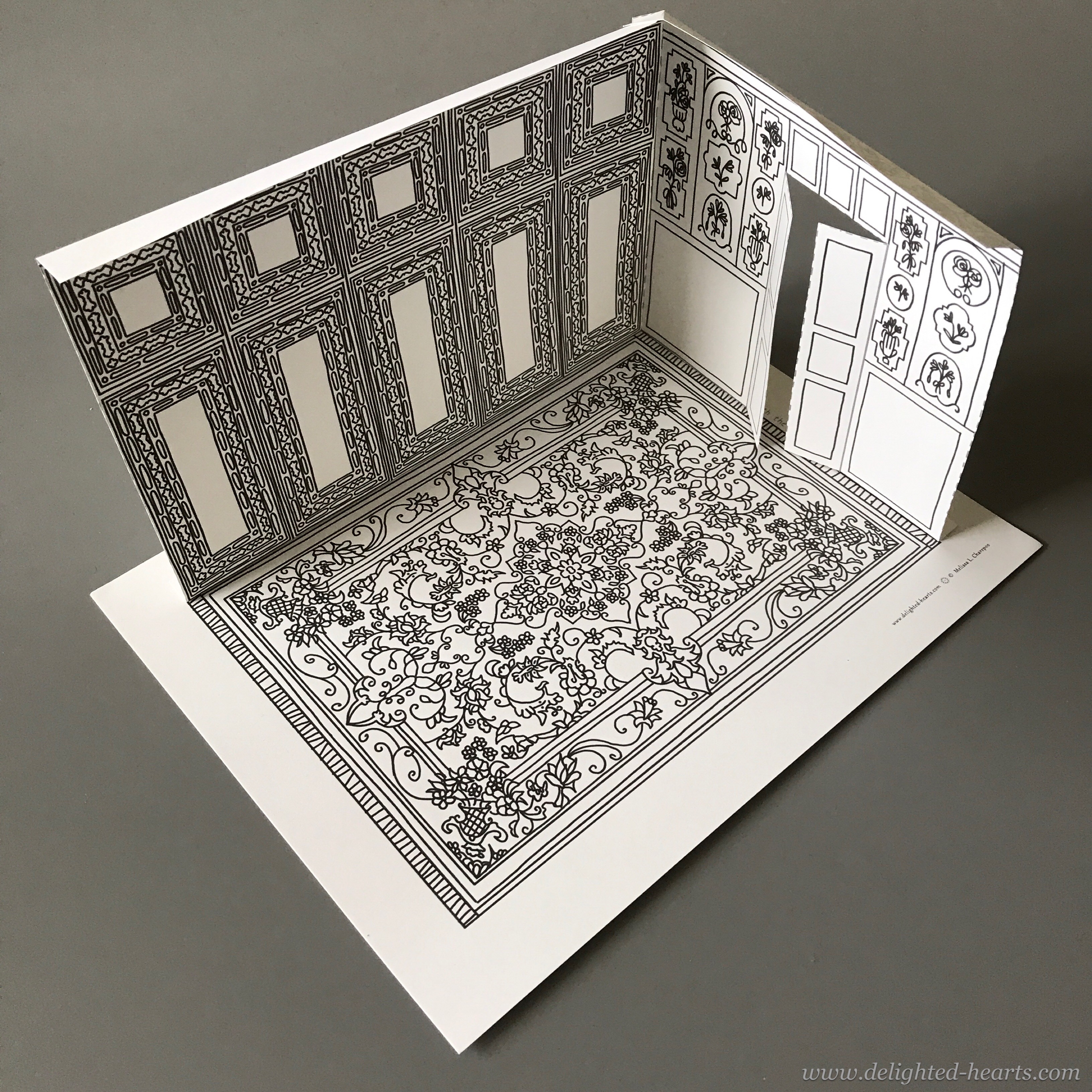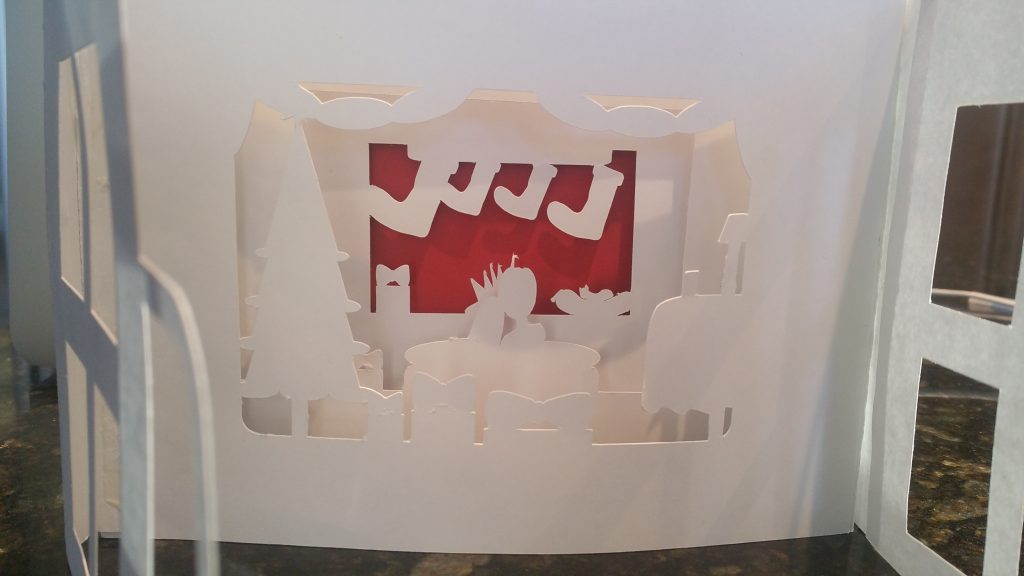
THE BÁB JOYFULLY SACRIFICED HIS LIFE AS HE PREPARED THE WAY FOR THE COMING OF BAHÁ’U’LLÁH
Introducing The Principal Theme
The Báb joyfully sacrificed His life, as He prepared the way for the coming of Bahá’u’lláh. This is a profound concept on which we need to reflect often on.
We have seen that news of the appearance of the Báb spread like a fire across the country and that heart after heart was ignited with the love of God. And we also saw that the enemies of the Báb were fierce and powerful. They wanted nothing more than to stop the spread of His Message. Of course, a fire that has been ignited by a human hand can be put out. But the fire of God’s love enkindled by the Hand of the Almighty Himself cannot be extinguished, even if all the people of the world unite to do so.
Do you remember how these powerful enemies attempted to undermine the Cause?
Were they successful in their efforts?
They could give orders to kill hundreds of the Bábís, and the ignorant and misguided people would carry them out. They could raise huge armies against small bands of the followers of the Báb and use treachery to overcome them. They could ridicule them, rob them, imprison them, and banish them from their homes and their families. All of this they did time and again. But could their cruelty and treachery put out the fire of God’s love burning in the hearts of those early heroes of the Faith?
On the contrary, the persecutions became like oil that feeds the fire; the fire burned even brighter and spread even more.
Do you know what terrible plan the government and clergy finally devised?
They decided that the only solution was to execute the Báb Himself. This, they imagined, would surely put an end to the spread of a Message that threatened to weaken their own power and influence.
But do you think there was anything they could do to stop more and more people from recognizing the Báb and accepting the truth?
Was there anything they could do to prevent the Báb from accomplishing His Mission on earth?
The Báb knew, of course, that His Dispensation would be a short one.
We know that His purpose was to prepare the way for the coming of Bahá’u’lláh. And His love for Bahá’u’lláh was so great that He accepted untold suffering in His path.
The Báb was concerned with the future of humanity
His eyes were fixed on all of humankind, not merely Persia. He was the Herald of a New Era. He wanted to purify hearts so that they would recognize Bahá’u’lláh. He had come to announce the nearness of the Kingdom of God. And for this, He joyfully gave His life. With His own blood, He watered the tree of the Cause which He Himself had planted only a few short years before.

Note, this is the last lesson for memorizing the 3 prayers below
1. Is there any remover of difficulties save God? Say: Praised be God! He is God! All are His servants, and all abide by His bidding!
2. Say: God sufficeth all things above all things, and nothing in the heavens or in the earth but God sufficeth. Verily, He is in Himself the Knower, the Sustainer, the Omnipotent.
3. O Lord! Thou art the Remover of every anguish and the Dispeller of every affliction. Thou art He who banisheth every sorrow and setteth free every slave, the Redeemer of every soul. O Lord! Grant deliverance through Thy mercy, and reckon me among such servants of Thine as have gained salvation.
Get Memorization Aid here

QUEEN OF CARMEL
TEACH US THY ONENESS BY ANNA MCDONALD MASTER
THE POWER OF HIS MIGHT

O my God! There is no one but Thee to allay the anguish of my soul, and Thou art my highest aspiration, O my God. My heart is wedded to none save Thee and such as Thou dost love. I solemnly declare that my life and death are both for Thee. Verily Thou art incomparable and hast no partner.
The Báb
Use the worksheet
FOR ANY WORDS YOU ARE NOT SURE OF Download here
SEND THE QUOTE AS A POSTCARD

Send to a friend or neighbour

Historical Episodes
The historical episode below tells the story of the martyrdom of the Báb. As additional stories leading up to the martyrdom, the events surrounding the Báb’s examination in Tabríz and the extraordinary vision beheld by Anís—the companion with whom the Báb chose to share the Crown of martyrdom—are also related here. Some of you may already be familiar with the details of this important episode from the history of the Faith, and you will all hear it often throughout your lives.
STORY 1
You know that, by order of the king, the Báb was sent under guard to the fortress of Máh- Kú in a far-off corner of the country with the hope that He would be forgotten. On His way, He went through the city of Tabríz, and His arrival created a great deal of excitement and commotion among the inhabitants. Throngs of people came to the gate of the city to witness His entrance. He was taken immediately to one of the main houses, in which He was confined.
The Báb remained in Tabríz for only a short time before being taken to the fortress of Máh-Kú. But we have already seen how the machinations of the government failed, and there, like everywhere else, the people became enraptured by the Báb, and His followers were able to attain His presence. And so, after several months, the government transferred Him to another fortress, much harsher, called Chihríq. Under the authority of a stern and unbending warden, Chihríq would surely prove to be a formidable prison for One Whose power and influence government officials had begun to fear. Can you imagine their alarm, then, at learning that, even in that desolate spot, the Báb continued to win over more and more followers to His Cause? Not even the warden could resist the penetrating influence of His love. So when news reached officials in the capital Ṭihrán that some of the most distinguished clergy from a town near Chihríq had accepted the Báb’s Faith, the government decided to act again.
What happened next will bring both joy and sorrow to your hearts. Once again the Báb was brought to the city of Tabríz. There, the government called a meeting of the religious authorities to examine the Báb and find the most effective way to put an end to His influence. At that meeting, the clergy and government officials tried to humiliate the Báb and treated Him disrespectfully, thinking they could force Him to give up His Mission. But they were overpowered by His majesty and greatness. When asked, “Whom do you claim to be, and what is the message which you have brought?” He declared: “I am, I am, I am, the Promised One! I am the One Whose name you have for a thousand years invoked, at Whose mention you have risen, Whose advent you have longed to witness, and the hour of Whose Revelation you have prayed God to hasten. Verily I say, it is incumbent upon the peoples of both the East and the West to obey My word and to pledge allegiance to My person.” A few days after that meeting, the Báb was taken back to Chihríq. By now, however, it was becoming clear to His enemies that, as long as the Báb remained alive, it would be impossible to stop His growing influence.
There lived in the city of Tabríz a young man whom history will always remember by his title, Anís. He belonged to a family of one of the leading clergy in that city and was well respected and trusted by everyone around him. He had the bounty of attaining the presence of the Báb during His earlier brief confinement in Tabríz and had become one of His ardent followers. So intense was the love of God enkindled in the heart of Anís that he had no other desire but to please his Lord. His stepfather, who did not understand the greatness of the Cause, was alarmed by the behavior of his son and decided to confine him in his house and keep a strict watch over him. For a few weeks, Anís spent all his days praying that God would allow him to reach the presence of the Báb again. One day while lost in prayer, he had an extraordinary vision that filled his heart with limitless joy and assurance. In his vision, he saw the Báb standing before him. Anís threw himself at His feet. In answer to his supplications, the Báb addressed him saying: “Rejoice, the hour is approaching when, in this very city, I will be suspended before the eyes of the multitude and shall fall a victim to the fire of the enemy. I shall choose no one except you to share with Me the cup of martyrdom. Rest assured that this promise which I give you shall be fulfilled.”
So Anís began to wait patiently. With each passing day, he felt closer to attaining the goal of his life and reaching his glorious destiny. Then the day arrived when the Báb was brought again to Tabríz, this time to be martyred. As He was being conducted to His prison cell, Anís threw himself at His feet. He begged the Báb to allow him to follow Him wherever He might go. Anís was immediately arrested and thrown in the same cell as the Báb.
STORY 2
The Báb spent the evening before His martyrdom in the company of Anís and three other of His loyal followers. He was aglow with joy and spoke with cheerfulness. “Tomorrow,” He said to His companions, “will be the day of My martyrdom. Would that one of you might now arise and, with his own hands, end My life. I prefer to be slain by the hand of a friend rather than by that of the enemy.” Tears rained from the eyes of these four sorrow-stricken men who were now asked to take the life of their Beloved with their own hands. They could not imagine committing such a cruel deed, even though it was the wish of the Báb Himself. Then, all of a sudden, Anís rose to his feet and accepted to carry out the Báb’s command. Obedience to his Beloved was his highest duty; he had no choice but to do exactly as the Báb wished. “This same youth who has risen to comply with My wish,” the Báb declared, “will, together with Me, suffer martyrdom. Him will I choose to share with Me its crown.”
The next morning, the Báb was conversing with his secretary when a government official rudely interrupted Him. The Báb warned the man that not until He had said to His secretary all those things that He wished to say could any earthly power silence Him. But His words fell on deaf ears, and He was taken from His cell to the houses of the most prominent clergy of the city of Tabríz who, without hesitation, signed the decree for His execution. He was then taken to a public square and delivered into the hands of Sám Khán, the commander of the regiment of soldiers that had been chosen to execute Him. But Sám Khán was seized with fear that his action would bring the wrath of God upon him. “I profess the Christian Faith,” he explained to the Báb, “and entertain no ill will against you. If your Cause be the Cause of Truth, enable me to free myself from the obligation to shed your blood.” “Follow your instructions,” the Báb replied, “and if your intention be sincere, the Almighty is surely able to relieve you from your perplexity.”
Sám Khán ordered his men to drive a nail into a pillar and to tie two ropes to that nail. With these ropes, they suspended the Báb and Anís in such a way that Anís’ head was resting on the breast of his Master. Seven hundred and fifty soldiers stood in three rows of two hundred and fifty men, each of which was ordered to open fire. The smoke from the shots was such as to turn the light of the noonday sun into darkness. As soon as the clouds of smoke had cleared away the astounded multitude that had crowded the square and the rooftops saw what their eyes could not believe. Anís was standing before them unhurt, and the Báb had disappeared.
The officials began to look for the Báb and found Him in the cell continuing His conversation with His secretary. “I have finished My conversation,” said the Báb, “Now you may proceed to fulfill your intention.” Sám Khán refused to make a second attempt at shedding the blood of the Báb. A new regiment was brought in. The Báb and Anís were once again suspended on the same pillar. The soldiers fired their guns, and this time, as it was now the Will of the Báb, they succeeded in carrying out their shameful intention. The two bodies were torn by numerous bullets, but even so the faces remained almost untouched. “Had you believed in Me, O wayward generation,” were the last words of the Báb to the multitude, “every one of you would have followed the example of this youth, who stood in rank above most of you and willingly would have sacrificed himself in My path. The day will come when you will have recognized Me; that day I shall have ceased to be with you.”
The remains of the Báb and His companion were transferred to a moat outside the city walls, and guards were posted there so that no one could claim them. So many bullets had pieced their bodies that they had been fused into one. Two nights later a devoted follower of the Báb managed to rescue their bodies and safely hide them. Their remains were eventually transferred from Tabríz to Ṭihrán, where they were kept safe, until, many years after, they were brought to the Holy Land and placed in the Shrine that had been raised up in His Name by ‘Abdu’l-Bahá at the instruction of Bahá’u’lláh. And if you ever have the bounty of visiting that Holy Spot and entering the blessed room in which His earthly remains are buried, your thoughts will turn to the circumstances of His martyrdom and your hearts overflow with love for One Who accepted every suffering to prepare the way for the coming of Bahá’u’lláh.
What are some of the spiritual significance that this episode holds?
The Báb held the reins of His destiny in His hands, choosing to endure suffering so that humanity could attain true joy and happiness,
What other insights can we glean from the episode?
STORIES FROM THE DAWNBREAKERS FOR CHILDREN: Read by Hand of the Cause of God William Sears
USE THE RESOURCES BELOW AS NEEDED

FACTS ABOUT THE BÁB
- In April 1848 the Báb was moved from the fortress of Máh-Kú to the prison fortress of Chihríq.
- The Báb remained in the prison fortress of Chihríq for some two years.
- The follower chosen to be martyred with the Báb is known as Anís.
- The title Anís means “close companion”.
- Sám Khán was the commander of the regiment ordered to execute the Báb.
- In the first attempt to execute the Báb, seven hundred and fifty soldiers opened fire on Him and Anís.
- In the first attempt to end His life, the Báb was unhurt and was found completing His unfinished conversation with His secretary.
- The martyrdom of the Báb took place in Tabríz.
- The martyrdom of the Báb took place at noon on 9 July 1850.
- The Báb was in the thirty-first year of His life when He was martyred.
- The Báb was in the seventh year of His Ministry when He was martyred.
Download the memorization aid cards FACTS ABOUT THE BAB HERE

SUGGEST A GAME…

MAKE A PRAYER CORNER



WE USED THE ROOM OF THE BAB AS PART OF THE PRAYER CORNER DOWNLOAD BELOW

DOWNLOAD THE 3D ROOM TO ASSEMBLE FROM HERE
WE THEN USED SMALL BOXES AND WE PUT ITEMS TO REPRESENT THE BÁB
- THE LID OF THE BOX PAINTED GREEN TO REMEMBER THAT THE BÁB WAS A DIRECT DESCENDENT OF MUHAMMAD
- AN ORANGE (MADE FROM FIMO DOUGH) TO REMEMBER THE ORANGE TREE PLANTED BY THE BÁB
- A COIN TO REMEMBER THAT THE BÁB WAS A MERCHANT
- TEA AND SUGAR TO REMEMBER THAT BAHA’U’LLAH SENT A LOAF OF RUSSIAN SUGAR AND TEA TO THE BÁB
- A CANDLE TO REMEMBER THAT IN MAH KU BAB WAS DENIED LIGHT.
Find which path leads to which Hero.

All paths lead to one of the Heros we have read about. The 2 quests are similar, one is a bit more detailed with pictures the second is simplified. If your favorite hero is not here, how about you try your hand at making a quest map like this one?
DRAWING
One possibility as a drawing exercise in this lesson is to sketch a seed, out of which a tree is starting to grow. In doing so, we can explain to them that, though the seed seems to die, it actually gives rise to a tree.
HERO SHEILD TO DECORATE
DAYSPRING
If you have not already tried the crfts in the magazine, take a look! There are 2 issues with lots of information about the Bab, as well as activities and crafts. Download here and here
BRILLIANT STAR MAGAZINE

“It is the greatest longing of every soul who is attracted to the Kingdom of God to find time to turn with entire devotion to his Beloved, so as to seek His bounty and blessing and immerse himself in the ocean of communion, entreaty and supplication.”
‘Abdu’l-Bahá, in The Importance of Obligatory Prayer and Fasting

BRILLIANT STAR MAGAZINE
The Báb sacrifices His life to prepare the way for Bahá’u’lláh
Martyrdom of the Báb and His companion Anis
Life of the Báb: His Martyrdom
Vol. 51 No. 2, p. 4
Tragedy and Triumph: The Báb’s Final Years – History and prayer
Vol. 36 No. 4, pp. 18-19
The Case of the Dreadful Disunity – Josie the Detective learns about the Martyrdom of the Báb
Vol. 38 No. 3, pp. 20-21
Following Their Footsteps – Map with locations of significant events, including the Martyrdom of the Báb
Vol. 33 No. 2, pp. 14-15


